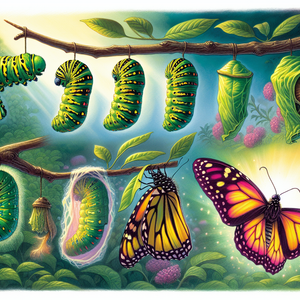Next Generation Farmers: Reimagining Agriculture for a Warmer World

Traditionally, farming has been passed down through generations with gradual evolution. Today, next-generation farmers often have backgrounds in fields like environmental science and data analytics. They combine digital fluency and global awareness with agricultural knowledge to address climate threats. Examples like Molly Rockamann and her EarthDance Organic Farm School show how regenerative techniques and digital tools are being taught together, reflecting a global movement focused on resilience as much as productivity.
Technology Meets Tradition
Next-generation farming embraces technology alongside traditional knowledge. Drones, satellite imagery, and AI provide real-time data and predictions, enabling efficient resource use and adaptation to threats. Companies like Apollo Agriculture use machine learning and satellite data to help farmers in Kenya, while urban vertical farms in cities like Singapore and New York drastically reduce water use and emissions. Rediscovered traditional practices, such as the 'three sisters' intercropping and biochar, are being validated by science for their resilience and sustainability benefits.
Climate Modeling: Farming with Foresight
Integrating climate modeling into farming allows for anticipation of weather changes and informed decision-making. Organizations like the Climate Corporation and CGIAR’s Climate-Smart Agriculture program provide digital tools for scenario planning. Farmers in Australia and Bangladesh use these models to select crop varieties suited for future climate risks, making data-driven decisions essential for resilience.
Redefining Agricultural Careers
Climate-adaptive agriculture is transforming careers in the sector. Modern farmers may be drone pilots, consultants, or data scientists. Educational programs now merge biology, technology, and social science to prepare students for these interdisciplinary roles. The sector is attracting diverse talent, including urban entrepreneurs and tech-savvy youth, and is experiencing a boom in climate resilience-related job opportunities.
The next generation of farmers is cultivating resilience by merging technology with tradition, leveraging climate science, and redefining agricultural careers. Their innovative approaches are building a food system capable of adapting to climate change, promising food security and sustainability. For anyone interested in sustainability or innovation, agriculture now offers exciting opportunities to contribute to a resilient and transformed future.
Precision Agriculture Specialist
Agri-tech startups (e.g., Climate Corporation, Granular), agricultural cooperatives, large-scale farms
Responsibilities
Implement and manage farm technology systems, such as drones, GPS-guided tractors, and sensor networks to monitor crop health, soil moisture, and yield.
Analyze geospatial and agronomic data to inform planting, irrigation, and fertilization strategies for optimal resource use and environmental stewardship.
Required Skills
Proficiency with agricultural software (e.g., John Deere Operations Center, Trimble Ag Software) and familiarity with remote sensing technologies.
Strong analytical skills; ability to interpret large datasets and translate insights into actionable recommendations for farmers.
Unique Qualifications
Degree in agronomy, agricultural engineering, or environmental science; experience with GIS or drone piloting is highly valued.
Regenerative Agriculture Consultant
Environmental NGOs, organic farm networks (e.g., Rodale Institute, EarthDance Farm School), consulting firms specializing in sustainability
Responsibilities
Advise farms and food businesses on transitioning to regenerative practices such as cover cropping, rotational grazing, and agroforestry.
Design and implement soil health improvement plans, including composting systems and biochar application.
Required Skills
In-depth knowledge of soil science, ecosystem services, and sustainable land management practices.
Ability to engage with diverse stakeholders—including Indigenous communities—to integrate traditional ecological knowledge.
Unique Qualifications
Certification in permaculture or regenerative agriculture; fieldwork experience and strong communication skills.
Climate-Smart Agriculture Data Analyst
Research organizations (e.g., CGIAR, universities), agri-tech companies (e.g., Apollo Agriculture), government agencies
Responsibilities
Develop and maintain climate risk models to forecast impacts on crop yields, pest outbreaks, and water availability.
Collaborate with agronomists and local farmers to tailor data-driven recommendations for specific regions and crops.
Required Skills
Expertise in statistical modeling, machine learning, and climate data analysis (using tools like Python, R, or specialized agri-data platforms).
Understanding of agricultural systems, crop phenology, and climate adaptation strategies.
Unique Qualifications
Advanced degree in data science, climatology, or agricultural economics; field experience in agricultural settings is a strong asset.
Urban Vertical Farm Operations Manager
Urban agriculture companies (e.g., AeroFarms, Bowery Farming, Plenty), food tech startups, research greenhouses
Responsibilities
Oversee daily operations of high-tech indoor farms, including hydroponic or aeroponic crop production, lighting systems, and climate control.
Manage teams, supply chains, and food safety protocols to ensure efficient, sustainable, and profitable production.
Required Skills
Technical proficiency with automated growing systems, nutrient management, and integrated pest management in controlled environments.
Leadership and organizational skills; ability to optimize workflows and troubleshoot technical issues.
Unique Qualifications
Degree in horticulture, plant science, or engineering; experience with controlled-environment agriculture and food safety standards.
Agricultural Drone Pilot & Data Technician
Precision agriculture service providers, farm management companies, agricultural research institutions
Responsibilities
Operate unmanned aerial vehicles (UAVs) to conduct aerial surveys of farmland for crop health, pest infestations, and resource mapping.
Process drone imagery and generate actionable reports for farmers, agronomists, or consultants.
Required Skills
FAA Part 107 (or local equivalent) drone operator certification; skills in GIS mapping and remote sensing image analysis.
Ability to maintain and troubleshoot aerial and sensor equipment in the field.
Unique Qualifications
Strong technical aptitude, field experience in agricultural settings, and familiarity with software like Pix4D or DroneDeploy.


